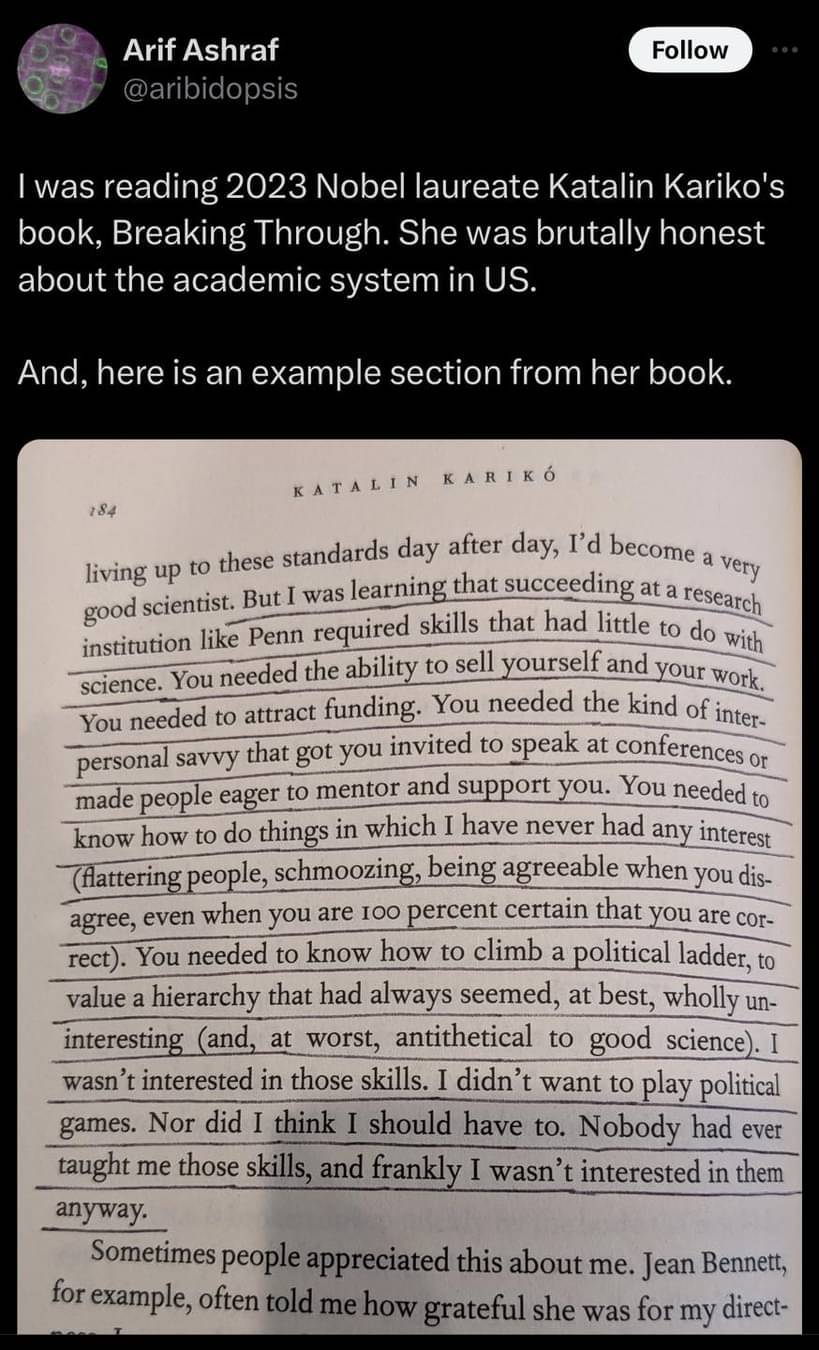this post was submitted on 29 May 2024
1299 points (98.1% liked)
Science Memes
11946 readers
1715 users here now
Welcome to c/science_memes @ Mander.xyz!
A place for majestic STEMLORD peacocking, as well as memes about the realities of working in a lab.

Rules
- Don't throw mud. Behave like an intellectual and remember the human.
- Keep it rooted (on topic).
- No spam.
- Infographics welcome, get schooled.
This is a science community. We use the Dawkins definition of meme.
Research Committee
Other Mander Communities
Science and Research
Biology and Life Sciences
- [email protected]
- [email protected]
- [email protected]
- [email protected]
- [email protected]
- [email protected]
- [email protected]
- [email protected]
- [email protected]
- [email protected]
- [email protected]
- [email protected]
- [email protected]
- [email protected]
- [email protected]
- [email protected]
- [email protected]
- [email protected]
- [email protected]
- [email protected]
- [email protected]
- [email protected]
- [email protected]
- [email protected]
- !reptiles and [email protected]
Physical Sciences
- [email protected]
- [email protected]
- [email protected]
- [email protected]
- [email protected]
- [email protected]
- [email protected]
- [email protected]
- [email protected]
Humanities and Social Sciences
Practical and Applied Sciences
- !exercise-and [email protected]
- [email protected]
- !self [email protected]
- [email protected]
- [email protected]
- [email protected]
Memes
Miscellaneous
founded 2 years ago
MODERATORS
you are viewing a single comment's thread
view the rest of the comments
view the rest of the comments

The research should speak for itself. Assuming the person judging it is competent, it shouldn't need to be "sold".
The people with the money don't understand the science. If you can't convince them that your science is worth investing in then why would they give you money? What's really shocking is that a Nobel prize winner isn't smart enough to understand that.
The idea is that those people shouldn’t be the ones with the money.
Then the academics should get better at taking it from them :)
The problem is not that one has to communicate the significance of research. However since the people with money don't understand the science, they can easily be mislead. And there are also big trends when it comes to funding so you can participate in the buzzword olympics to secure your funding. And this is where you leave the path of just communicating your research and its potential honestly.
The second point where this Nobel prize winner is very right is that it's all about networking, all about names. I don't know why we can't just publish research under a pseudonym, a number would suffice. This would make publishing and reviewing less susceptible to bias.
Same reason why we name amps and volts after Ampere and Volta. It's about recognition and legacy. Imagine you discover some new form of matter, a specialized region of the brain, a key component of time travel, or some algorithm that accurately describes any human interaction. Something revolutionary. Would you be content if it wasn't named for you? Ormr Matter, Ormr's Area, Ormr's Theory of Inverse Relativity, Ormr's Equation for Social Simulation. This is really just the extreme case, but I think it works well to demonstrate the point.
Yes. I recognize that most people don't think this way, though.
Very well put. That’s a big reason why the world is on fire: People trusting bad actors too easily because they know how to talk good.
At that point it should become a problem of educating, not politicking.
The thing is, “research” doesn’t speak, humans do. If a tree falls in the woods… and so on. Part of being a scientist is communicating what you’ve done, otherwise no one else will know. It’s a skill that has to be developed in some more than others, and it was a key part of my training as a scientist. I don’t really like that part as much, but I do it because it’s what makes my work have any impact.
Competence is judged by their ability to communicate the purpose and results. Lack of social skills also detracts from the audience who is willing to review it.
Valid to a degree, but there's such a thing as placing too much value on the person presenting it rather than the content of it. It seems like too common an occurrence.